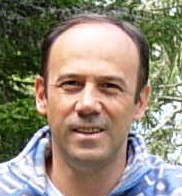Studying at the University of Verona
Here you can find information on the organisational aspects of the Programme, lecture timetables, learning activities and useful contact details for your time at the University, from enrolment to graduation.
Academic calendar
The academic calendar shows the deadlines and scheduled events that are relevant to students, teaching and technical-administrative staff of the University. Public holidays and University closures are also indicated. The academic year normally begins on 1 October each year and ends on 30 September of the following year.
Course calendar
The Academic Calendar sets out the degree programme lecture and exam timetables, as well as the relevant university closure dates..
| Period | From | To |
|---|---|---|
| First semester bachelor degree | Sep 16, 2019 | Jan 10, 2020 |
| Second semester bachelor degree | Feb 17, 2020 | Jun 5, 2020 |
| Session | From | To |
|---|---|---|
| First semester intermediate tests | Nov 4, 2019 | Nov 8, 2019 |
| Winter exam session | Jan 13, 2020 | Feb 14, 2020 |
| Second semester intermediate tests | Apr 15, 2020 | Apr 17, 2020 |
| Summer session exam | Jun 8, 2020 | Jul 10, 2020 |
| Autumn Session exams | Aug 24, 2020 | Sep 11, 2020 |
| Session | From | To |
|---|---|---|
| Autumn Session | Dec 2, 2019 | Dec 4, 2019 |
| Winter Session | Apr 7, 2020 | Apr 9, 2020 |
| Summer session | Sep 7, 2020 | Sep 9, 2020 |
Exam calendar
Exam dates and rounds are managed by the relevant Economics Teaching and Student Services Unit.
To view all the exam sessions available, please use the Exam dashboard on ESSE3.
If you forgot your login details or have problems logging in, please contact the relevant IT HelpDesk, or check the login details recovery web page.
Academic staff
Borello Giuliana
 giuliana.borello@univr.it
giuliana.borello@univr.it
 045 802 8493
045 802 8493
 roberto.fini@univr.it
roberto.fini@univr.it
 vania.licio@univr.it
vania.licio@univr.it
 martina.menon@univr.it
martina.menon@univr.it
 francesca.rossignoli@univr.it
francesca.rossignoli@univr.it
 0444 393941 (Ufficio Vicenza) 0458028261 (Ufficio Verona)
0444 393941 (Ufficio Vicenza) 0458028261 (Ufficio Verona)
Study Plan
The Study Plan includes all modules, teaching and learning activities that each student will need to undertake during their time at the University.
Please select your Study Plan based on your enrollment year.
1° Year
| Modules | Credits | TAF | SSD |
|---|
2° Year activated in the A.Y. 2020/2021
| Modules | Credits | TAF | SSD |
|---|
3° Year activated in the A.Y. 2021/2022
| Modules | Credits | TAF | SSD |
|---|
| Modules | Credits | TAF | SSD |
|---|
| Modules | Credits | TAF | SSD |
|---|
| Modules | Credits | TAF | SSD |
|---|
| Modules | Credits | TAF | SSD |
|---|
Legend | Type of training activity (TTA)
TAF (Type of Educational Activity) All courses and activities are classified into different types of educational activities, indicated by a letter.
Mathematics for Economics and Finance (2021/2022)
Teaching code
4S02835
Teacher
Coordinator
Credits
6
Language
Italian
Scientific Disciplinary Sector (SSD)
MAT/09 - OPERATIONS RESEARCH
Period
primo semestre (lauree) dal Sep 20, 2021 al Jan 14, 2022.
Learning outcomes
The teaching aims to provide knowledge of basic quantitative tools and classic mathematical models for the analysis and evaluation of the main economic-financial operations, of the financing contracts and investment projects, tools and models that can be used for an efficient business management. At the end of the lessons, the student must be able to correctly represent an economic and financial problem in a mathematical model, evaluating it so it takes into account the right hypotheses, the correct choice of the mathematical expressions and the correct methodology for solving the problem; therefore, the teaching aims to develop the capacity for autonomous reasoning in the analysis and interpretation of concrete problems.
Program
1. Basic financial laws
Basic financial operations. Capitalization and actualization. Final value, present value, interest, discount, interest rate, discount rate. Simple interest law. Composed interest law. Equivalence among different laws. Equivalent interest rates. Nominal rates, inflation, real rates.
2. Composed financial operations
Present and final value of a financial annuity. Net present value. Internal rate of return (IRR). Evaluation of the amount of payments, of the number of payments, of the IRR. Annual nominal rate and annual percentage rate. Amortizations in various different forms. Leasing contracts. Bonds and their evaluation. BOT and BTP. Duration and convexity.
Choice between financial projects with different criteria (NPV, IRR, TRM).
The detailed program and further educational material, in Italian, are available in the web page and in the e-learning page of the course.
Teaching supply
The course consists of 48 hour lectures (equivalent to 6 credits), devoted both to the general aspects of the financial models and to the solution of computational problems. Both lessons and exercises are in Italian.
In the web page of the course students may find some lecture notes and all the exams proposed in the previous exam sessions with the relative solutions. In the e-learning pages students may find the exercise lectures with the solutions. The whole teaching material is in Italian.
During the lesson semester and before the exam sessions there is a tutoring service (also in Italian), organized by senior students, trained by the teachers.
Bibliography
Examination Methods
The final exam will consist of a written test, possibly followed by an oral test only in cases of non-serious insufficiency in the written test (grade between 16/30 and 17/30 ).
The test includes 3-4 numerical exercises, divided into several questions.
Type D and Type F activities
Nei piani didattici di ciascun Corso di studio è previsto l’obbligo di conseguire un certo numero di crediti formativi mediante attività a scelta (chiamate anche "di tipologia D e F").
Oltre che in insegnamenti previsti nei piani didattici di altri corsi di studio e in certificazioni linguistiche o informatiche secondo quanto specificato nei regolamenti di ciascun corso, tali attività possono consistere anche in iniziative extracurriculari di contenuto vario, quali ad esempio la partecipazione a un seminario o a un ciclo di seminari, la frequenza di laboratori didattici, lo svolgimento di project work, stage aggiuntivo, eccetera.
Come per ogni altra attività a scelta, è necessario che anche queste non costituiscano un duplicato di conoscenze e competenze già acquisite dallo studente.
Quelle elencate in questa pagina sono le iniziative extracurriculari che sono state approvate dal Consiglio della Scuola di Economia e Management e quindi consentono a chi vi partecipa l'acquisizione dei CFU specificati, alle condizioni riportate nelle pagine di dettaglio di ciascuna iniziativa.
Si ricorda in proposito che:
- tutte queste iniziative richiedono, per l'acquisizione dei relativi CFU, il superamento di una prova di verifica delle competenze acquisite, secondo le indicazioni contenute nella sezione "Modalità d'esame" della singola attività;
- lo studente è tenuto a inserire nel proprio piano degli studi l'attività prescelta e a iscriversi all'appello appositamente creato per la verbalizzazione, la cui data viene stabilita dal docente di riferimento e pubblicata nella sezione "Modalità d'esame" della singola attività.
ATTENZIONE: Per essere ammessi a sostenere una qualsiasi attività didattica, inlcuse quelle a scelta, è necessario essere iscritti all'anno di corso in cui essa viene offerta. Si raccomanda, pertanto, ai laureandi delle sessioni di dicembre e aprile di NON svolgere attività extracurriculari del nuovo anno accademico, cui loro non risultano iscritti, essendo tali sessioni di laurea con validità riferita all'anno accademico precedente. Quindi, per attività svolte in un anno accademico cui non si è iscritti, non si potrà dar luogo a riconoscimento di CFU.
| years | Modules | TAF | Teacher |
|---|---|---|---|
| 1° 2° 3° | Soft skills coaching days Vicenza | D |
Paola Signori
(Coordinator)
|
| years | Modules | TAF | Teacher | |
|---|---|---|---|---|
| 2° | Enactus Verona 2020 | D |
Paola Signori
(Coordinator)
|
|
| 1° 2° 3° | Parlare in pubblico e economic writing | D |
Martina Menon
(Coordinator)
|
|
| 1° 2° 3° | Samsung Innovation Camp | D |
Marco Minozzo
(Coordinator)
|
|
| 1° 2° 3° | Simulation and Implementation of Economic Policies | D |
Federico Perali
(Coordinator)
|
|
| years | Modules | TAF | Teacher |
|---|---|---|---|
| 1° 2° 3° | Simulation and Implementation of Economic Policies | D |
Federico Perali
(Coordinator)
|
| years | Modules | TAF | Teacher |
|---|---|---|---|
| 1° 2° 3° | Parlare in pubblico e economic writing | D |
Martina Menon
(Coordinator)
|
Career prospects
Module/Programme news
News for students
There you will find information, resources and services useful during your time at the University (Student’s exam record, your study plan on ESSE3, Distance Learning courses, university email account, office forms, administrative procedures, etc.). You can log into MyUnivr with your GIA login details: only in this way will you be able to receive notification of all the notices from your teachers and your secretariat via email and soon also via the Univr app.





























